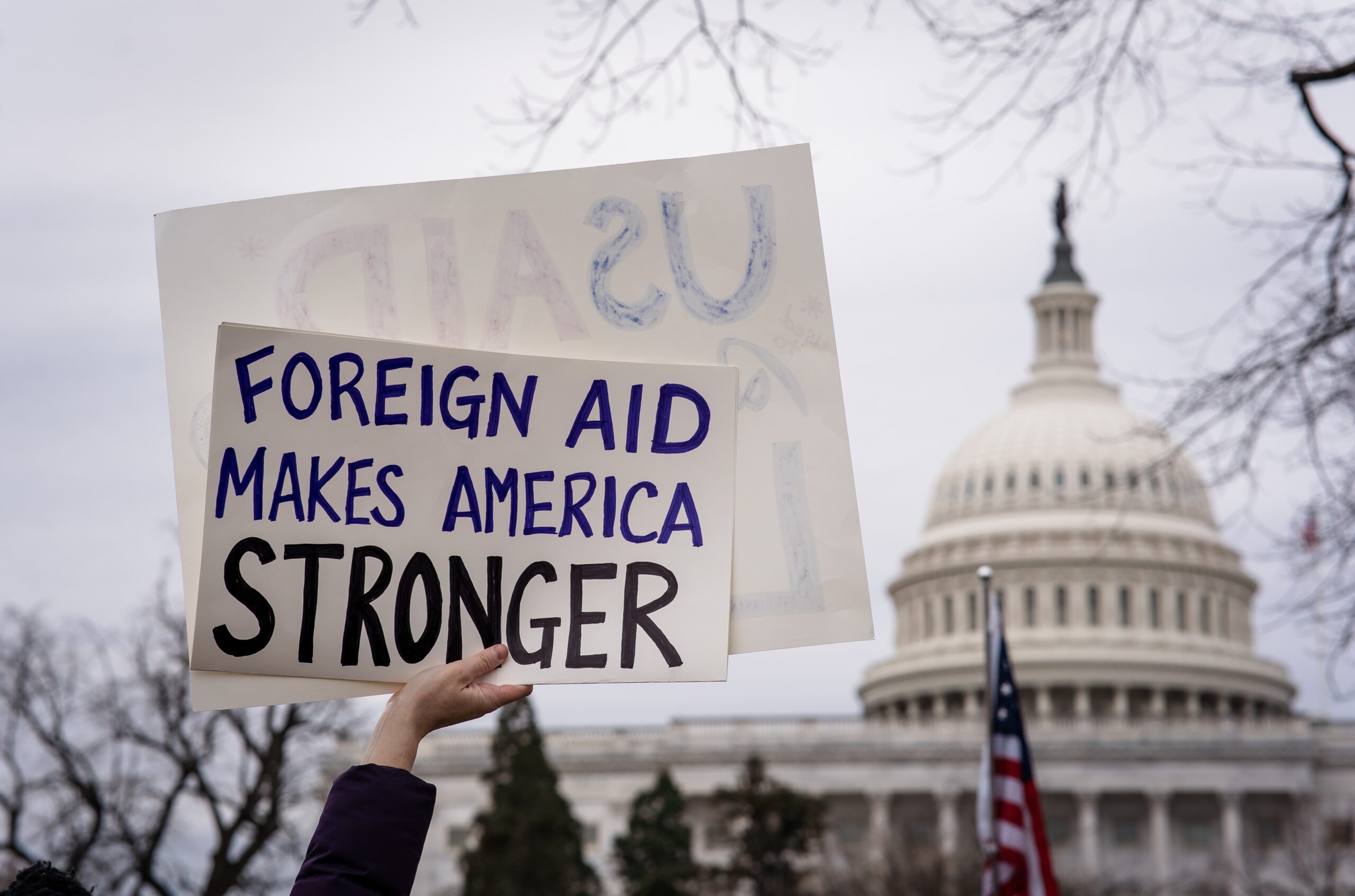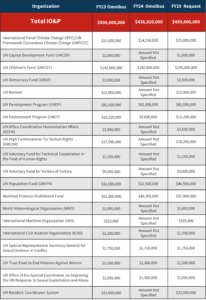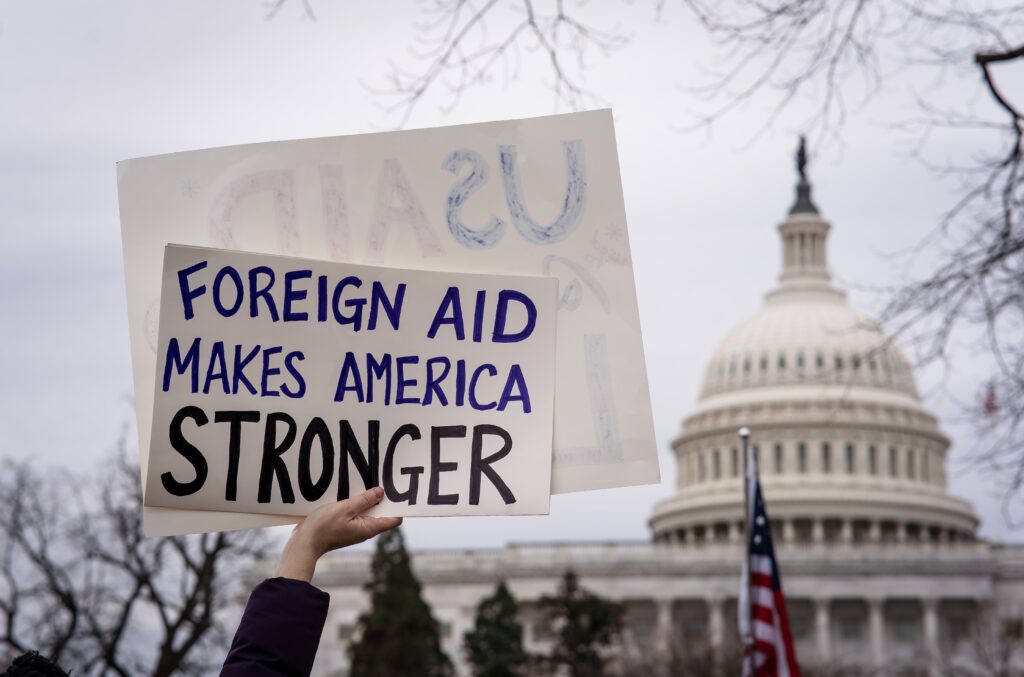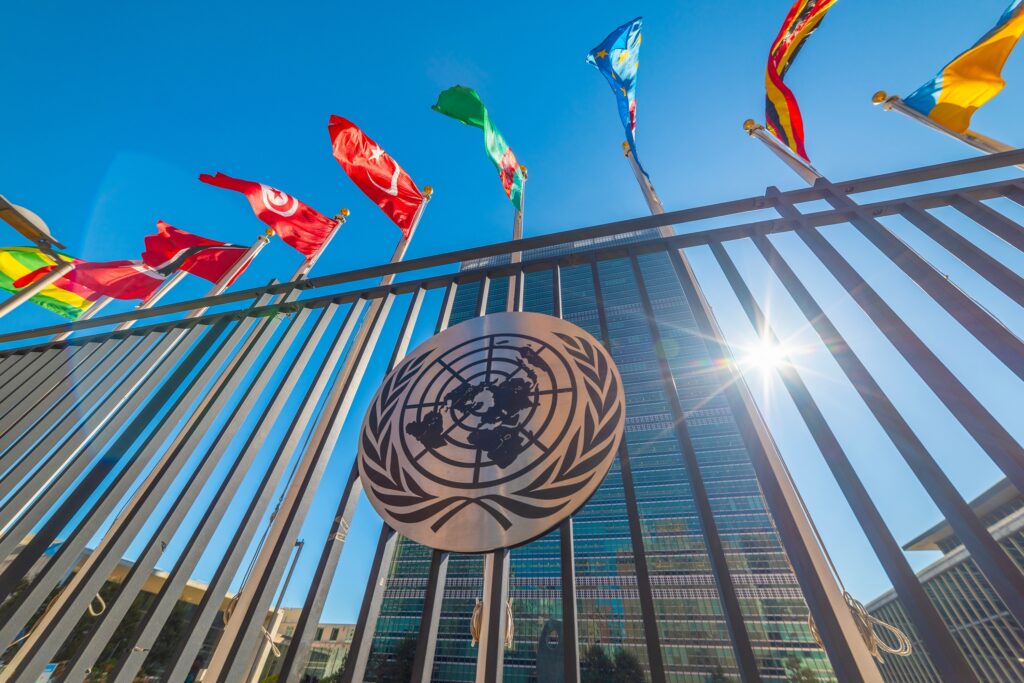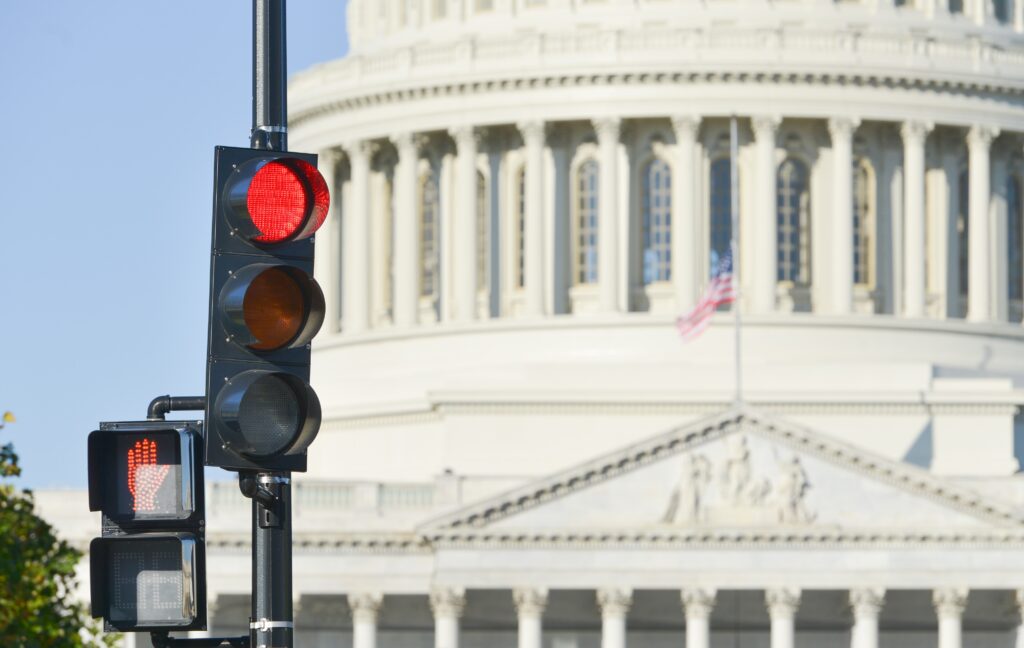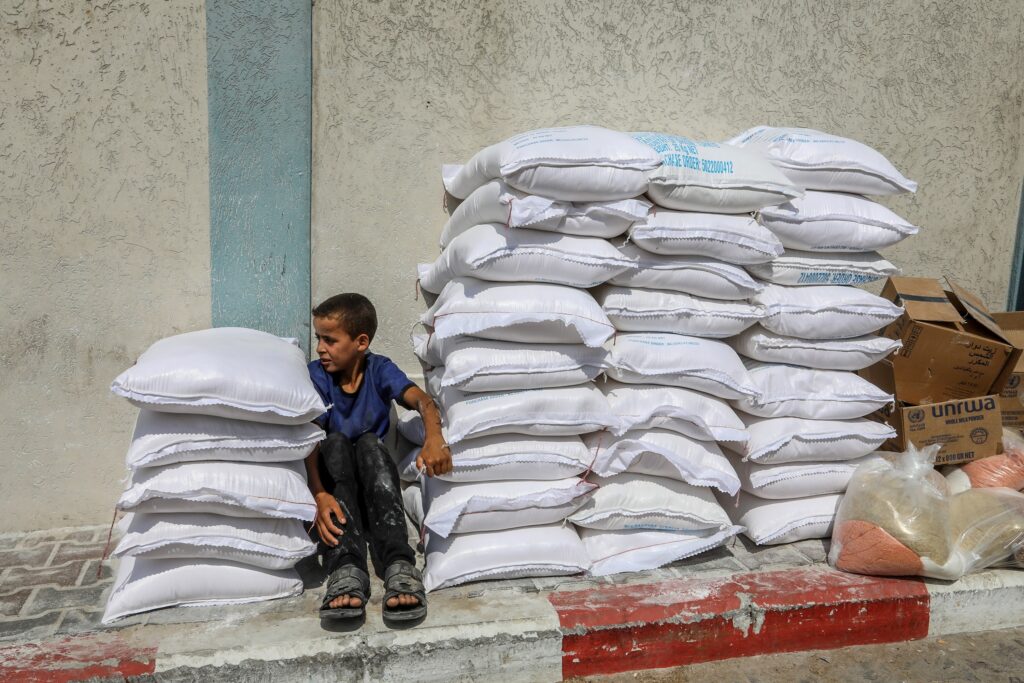On June 18, Congress approved sweeping and devastating cuts to United Nations programs. This unprecedented rescissions package comes as debate intensifies over future foreign assistance funding in the FY26 budget.
The rescissions package headed to the President’s desk claws back $9 billion in unspent international assistance from already authorized FY24 and FY25 budgets — including $1 billion from three key UN accounts: Contributions to International Organizations (CIO), Contributions for International Peacekeeping Activities (CIPA), and International Organizations and Programs (IO&P).
To help make sense of what just happened — and what’s still at risk — we’re breaking down which accounts were slashed and what we can expect in the coming months.
CIO
Contributions to International Organizations (CIO): $201.8 million cut
Background: The CIO account, housed in the State Department, covers U.S. membership dues to the UN and more than 40 other vital international bodies like the International Atomic Energy Agency (IAEA), the International Telecommunication Union (ITU), the International Civil Aviation Organization (ICAO), NATO and more. And this small line item carries big weight; it’s how we secure our vote in the UN General Assembly, uphold our influence and shape global rules in America’s favor. In recent years, CIO has been funded at roughly $1.5 billion annually.
Impacted Programs: While the rescissions legislation doesn’t specify which CIO accounts to cut (which gives the Administration broad discretion), the Administration’s original request targeted two main funding buckets:
- $33 million in “unattributed” balances from FY24
- $168.8 million in FY25 funds for the U.S. assessed contribution to the World Health Organization (WHO) and a portion of UN regular budget dues corresponding to the UN Human Rights Council and UNRWA
CIPA
Contributions for International Peacekeeping Activities (CIPA): $361.3 million cut
Background: The CIPA account funds the U.S. share of assessed dues to UN peacekeeping missions around the world. Also managed by the State Department, CIPA contributes to the deployment of more than 60,000 uniformed personnel to some of the world’s most fragile and conflict-affected regions that help prevent the spread of conflict, support political transitions and create conditions for long-term stability. For decades, CIPA has enjoyed bipartisan support as a cost-effective way to advance U.S. national security interests without deploying American troops. In recent years, the account has been funded at around $1.2 billion annually.
Impacted Programs: Again, while the rescissions legislation doesn’t specify which CIPA accounts to cut, providing wide authority for the Administration, the Administration’s request singled out funding for UN peacekeeping operations in the Democratic Republic of the Congo (MONUSCO) and Lebanon (UNIFIL).
- MONUSCO: The MONUSCO cut was especially surprising, since just last month, the U.S. brokered a peace deal between Rwanda and the DRC — a breakthrough in a decades-long conflict that has killed at least six million people, and where MONUSCO has been a critical presence. Secretary Rubio called the deal “an important moment after 30 years of war.” That same day, in remarks at the UN Security Council, U.S. Ambassador Dorothy Shea called for MONUSCO to be “empowered” to support the agreement.
- UNIFIL: UNIFIL, too, plays an essential role along the Israel-Lebanon border, supporting the Lebanese Armed Forces and limiting Hezbollah’s influence. Slashing UNIFIL’s funding now would risk destabilizing southern Lebanon, undercut the country’s recently elected anti-Hezbollah President and give Hezbollah space to regroup — a move that serves neither U.S. nor Israeli interests.
Because the bill language lacks specificity, other missions may also be at risk — including UNMISS in South Sudan, which is working to prevent renewed civil war, and MINUSCA in the Central African Republic, where peacekeepers protect civilians and support the extension of state authority in unstable regions.
IO&P
International Organizations and Programs (IO&P): $436.9 million cut
Background: The IO&P account has traditionally been the U.S. government’s primary vehicle for voluntary contributions to international organizations, particularly those within the UN system. These are not treaty-bound, assessed dues like those paid for the UN regular budget or peacekeeping. Instead, IO&P funds are discretionary investments in specific global agencies and programs that align with U.S. interests and values. IO&P funding, while relatively small, is a strategic multiplier. In FY24, IO&P received roughly $437 million — less than .01% of the federal budget. For context, that’s about what the U.S. spends each year on military bands.
Impacted Programs: The rescissions package eliminates all FY25 funding for the IO&P account. That includes voluntary contributions to the core budgets of a number of UN entities, such as UNICEF, the UN Development Programme, the UN Environment Program, UNFPA, UN Women, the Office for the Coordination of Humanitarian Affairs (OCHA), and the UN High Commissioner for Human Rights (OHCHR), among others.
See the chart below for a selected list of impacted programs.
Detailed Breakdown of Funding for Select UN Entities under IO&P
What’s Next
With the rescissions package passed, attention now turns to the FY26 federal budget — and the stakes remain high.
On July 15, the House Appropriations Subcommittee on National Security, the State Department, and Related Programs (NSRP) advanced its FY26 bill on a party-line vote (8–5). The proposal would slash U.S. funding for multilateral diplomacy: eliminating the IO&P account entirely, cutting CIO by 80% from FY25 levels and reducing UN peacekeeping funds by more than 55%.
This reflects a sharp turn toward isolationism and puts decades of bipartisan foreign policy at risk. Eliminating these accounts doesn’t just shrink budgets; it guts the daily operations of UN agencies, weakening staffing, planning and U.S. influence in the very rooms where global priorities are set. It also diminishes the ability of the UN to provide protection and lifesaving assistance to civilians in conflict and disaster zones.
So while rescissions may have passed, the fight over the FY26 budget lies ahead. Now’s the time to tell Congress: don’t turn your back on global leadership.
